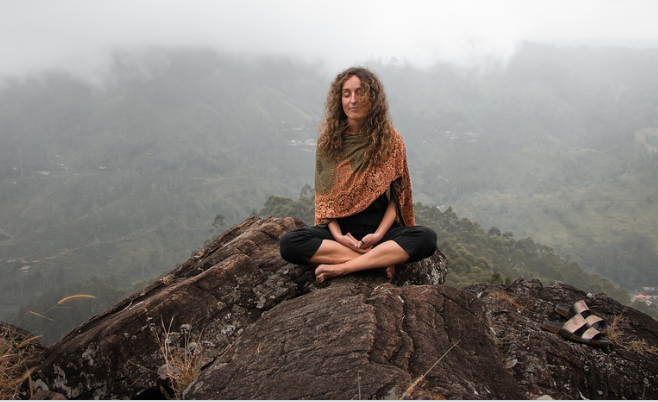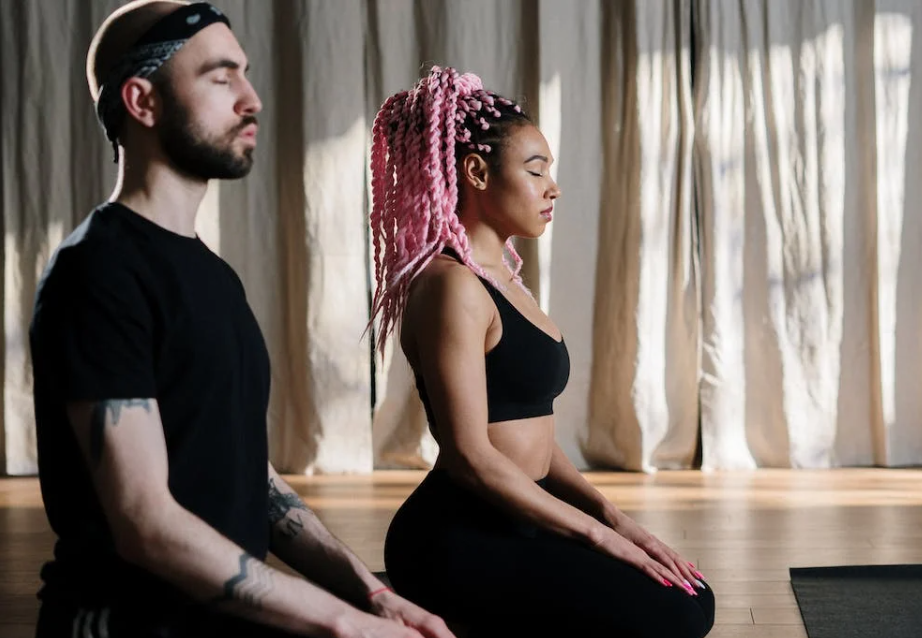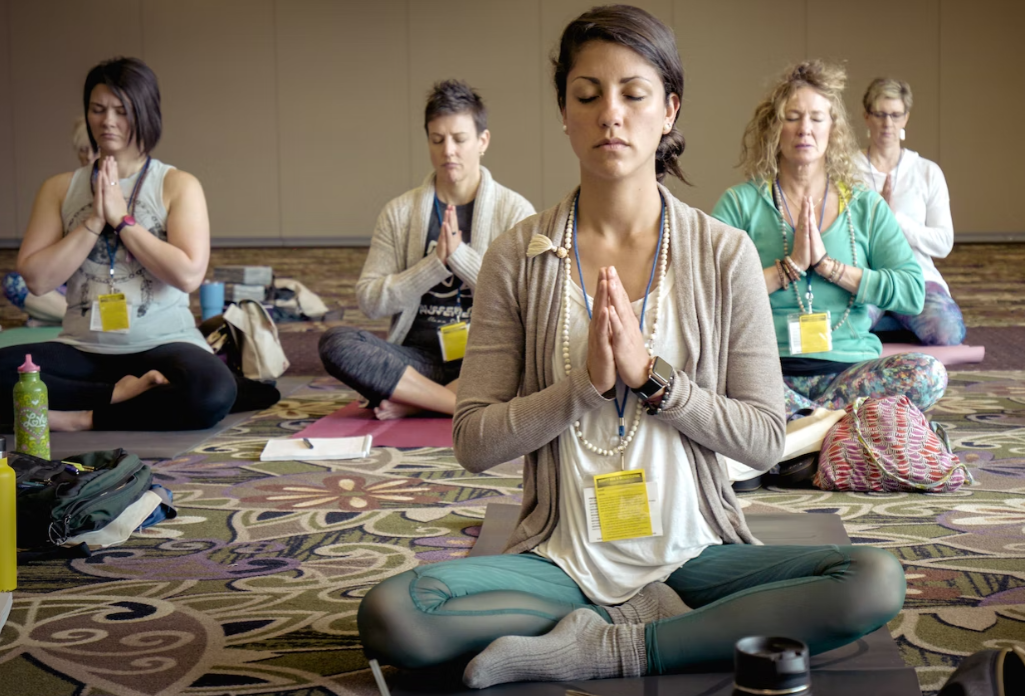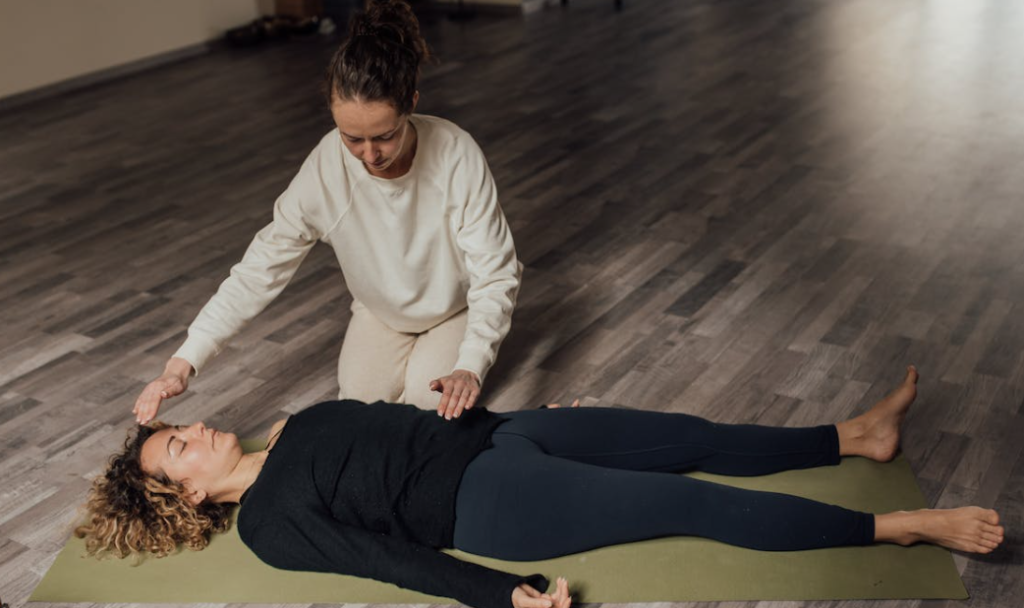Meditation Or Medication
Learn which is more effective for anxiety: meditation or medication.

Selfpause Affirmation App
Download the app to get 1,000’s of affirmation meditations and everything you need to write, record and listen to your own.
Meditation and medication are both very important for the well-being of the body. They are used for the maintenance of health and the cure of minor mental and emotional ailments. Unlike meditation, medication is specially designed to treat specific diseases. Some people choose to take up meditation programs while others take up medications with the same goal in mind.
Mindfulness meditation

Mindfulness meditation is a secular method of training that helps people overcome stress, depression, anxiety, and pain. Mindfulness-based stress reduction (MBSR) is an eight-week course that can be helpful in the treatment of a range of ailments, including chronic pain and depression. It’s also helpful for people who want to reduce their overall stress level without resorting to medications.
Although the practice of mindfulness meditation may seem intimidating, even a few minutes daily can bring significant benefits. You can start by simply focusing on your breath and the present moment. You can repeat the exercise as many times as you need to. The benefit of this form of meditation is that it can be done anywhere and anytime.
Studies have shown that mindfulness training can reduce stress levels throughout the body. Research has also shown that it reduces the level of genes associated with inflammation, which are indicative of a number of diseases. In addition, mindfulness training has been proven to improve a person’s immune system. However, it is important to remember that mindfulness training is not suitable for everyone.
Though meditation can be challenging for people with ADHD, it has a calming effect on the brain and body. The first step to begin meditating is to find a time in the day when you’re free of distractions and stressful activities. It helps to make meditation part of your daily routine, as it helps you commit to a consistent practice. Also, try different positions while sitting, as this can affect your comfort level.
Transcendental meditation

Transcendental meditation (TM) is a simple technique for avoiding distracting thoughts and promoting relaxed awareness. It originated in India and was brought to the United States by Maharishi Mahesh Yogi in the 1960s. It involves seated meditation, often with eyes closed, and silent repetition of a mantra. The goal is to reach a state of perfect stillness, rest, stability, and pure consciousness.
The Maharishi Foundation is a non-profit educational organization, with no board members, owners, or shareholders. It has given more than 1 million full TM scholarships to at-risk children and military veterans through partnerships with the David Lynch Foundation. However, Transcendental Meditation is not a substitute for professional medical diagnosis and treatment.
Transcendental meditation has a number of health benefits, including improved brain function, stress management, and anxiety relief. Some studies have shown it can decrease the need for psychotropic medications in patients. In addition, regular practice of TM can improve brain activity in regions associated with attention and low anxiety. In addition, it may reduce the occurrence of compassion fatigue, a condition where people who are often caring and compassionate for others become depressed or anxious.
One study examined the benefits of TM on high school students. Teenagers who practiced for a period of fifteen minutes twice a day reported a decrease in stress and anxiety. They also reported more relaxation and improved sleep. In addition, they reported increased self-confidence and increased happiness.
Expressive meditation

Expressive meditation involves moving your body and mind in order to release tensions that are building inside of you. It has many benefits and can help you find inner peace, clarity, and joy. Expressive meditation is also a good alternative to taking your stress out on others and allows you to release physical and emotional stress in a healthy way.
While there are numerous benefits to meditation, research indicates that it may not work for everyone. There are many limitations to meditation studies, including small sample sizes, short durations, and a lack of randomization. Further research is needed to determine whether or not meditation can help people with vascular disease or prevent inducible myocardial ischemia.
Expressive meditation is a practice that emphasizes the expression of emotion and draws from traditions like Tibetan Buddhism, Sufism, and the mystic Osho. Its practitioner emphasizes the need to express one’s feelings rather than suppress them. To practice Expressive meditation, start by laughing. It can be fun ideas or gibberish, but never try to hide or repress your laughter.
A person can find benefits from expressive meditation as well as transcendental meditation. These types of meditation have varying effects on different people, so try one to find what works best for you. It’s a good idea to choose the technique that’s most appropriate for your particular situation and time of day.
Mindfulness therapy

Using meditation as a treatment for depression or anxiety can be a highly effective way to improve your overall mental health. Often incorporated with other therapy methods, meditation can teach you to break free from negative thoughts and focus on the present. This can prevent your mind from spiraling out of control and leading to symptoms like depression, anxiety, or suicidal thoughts.
One study found that mindfulness meditation is just as effective as antidepressants for alleviating symptoms of depression. Researchers analyzed thousands of meditation studies and only included studies that were randomized clinical trials, which are considered the gold standard in science. While mindfulness meditation isn’t a cure-all, it is a proven treatment for many mental health disorders.
Both therapies aim to help patients develop the skill of mindfulness. The most common form of mindfulness-based approach is meditation, which may be practiced through a variety of techniques. During the practice, the therapist directs the participants to focus on the present moment. They may choose to focus on a specific phenomenon, such as a color or a sound, and then bring their attention back to the present moment. This technique can help patients better understand the emotions and physical sensations that are associated with the cognitions they are experiencing.
MBCT programs typically last eight weeks and consist of a weekly class of two hours. After the fifth week, they include a day-long class. The MBCT program is not offered everywhere, and you should consult with your physician before pursuing it. You can also search an online therapist directory if you are unsure where to begin. There are also many online programs that teach mindfulness-based therapies.
Antidepressants

Meditation or medication for antidepressants is a question that ignites strong opinions. While both types of treatment can offer profound benefits, there are also drawbacks to both methods. For example, a person who takes a drug may not reach the root of the problem. But a person who practices meditation can often maintain the gains of an antidepressant.
One of the main disadvantages of antidepressants is that they tend to be too general in their approach. Despite being used to treat a broad range of psychological disorders, they often fail to produce desired results. However, studies have shown that these treatments can be effective in reducing relapses and preventing recurrences. Many clinical guidelines recommend that people take antidepressants for at least a year or two.
Another drawback of antidepressants is that they have serious side effects. Some patients are unable to tolerate the side effects of antidepressants. As a result, a person who wants to avoid these side effects should consider meditation. MCBT can help people recognize their depressive thoughts and feelings and prevent them from becoming depressed again.
One study has demonstrated that mindfulness-based cognitive therapy can be just as effective as antidepressants in treating recurrent major depression. The researchers analyzed several studies of the effects of meditation on patients with depression and found that it had an effect size of 0.3 – the same as antidepressants. This suggests that meditation could be just as effective as antidepressants, although it isn’t effective for everyone.
Our Top FAQ's
The main difference between meditation and medication is that meditation is a non-pharmacological approach to improving mental and physical health, while medication involves the use of drugs to treat a wide range of conditions.
Some potential benefits of meditation compared to medication include improved mental clarity and focus, reduced stress and anxiety, and increased feelings of relaxation and well-being. These benefits are not necessarily exclusive to meditation and can also be achieved through medication in some cases.
Meditation can be used as a form of treatment or therapy, similar to medication, for a variety of conditions, such as anxiety, depression, and chronic pain. Some studies have shown that meditation can be effective in reducing symptoms and improving overall well-being in these and other conditions.
Both meditation and medication can have effects on the brain and body. Meditation has been shown to alter brain activity and function, and can potentially have positive effects on mental and physical health. Medication, on the other hand, works by targeting specific areas of the brain and body to treat specific conditions.
It is possible to combine meditation and medication for a more effective treatment of certain conditions. For example, meditation may be used in conjunction with medication to help manage anxiety or depression, or to improve overall well-being. However, it is important to consult with a healthcare provider before combining meditation and medication, as the potential risks and benefits can vary depending on the individual and their specific condition.
